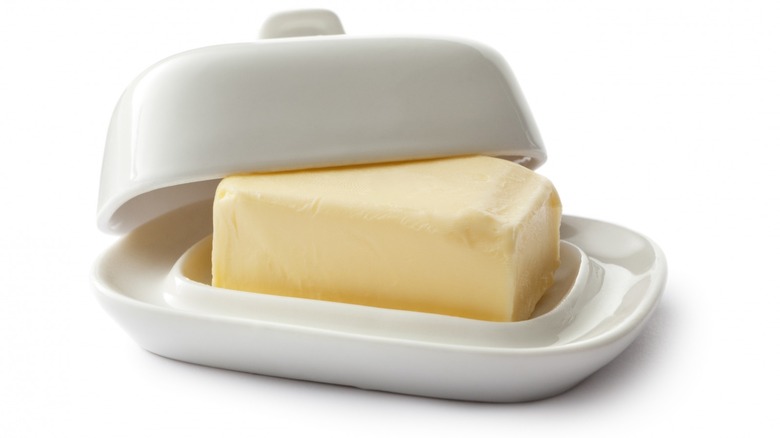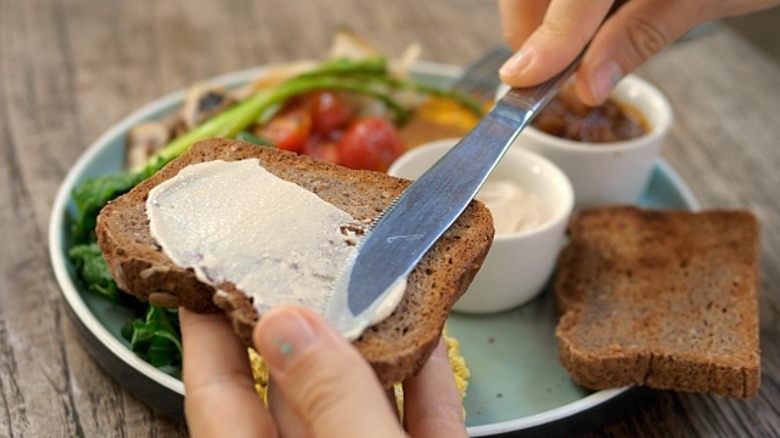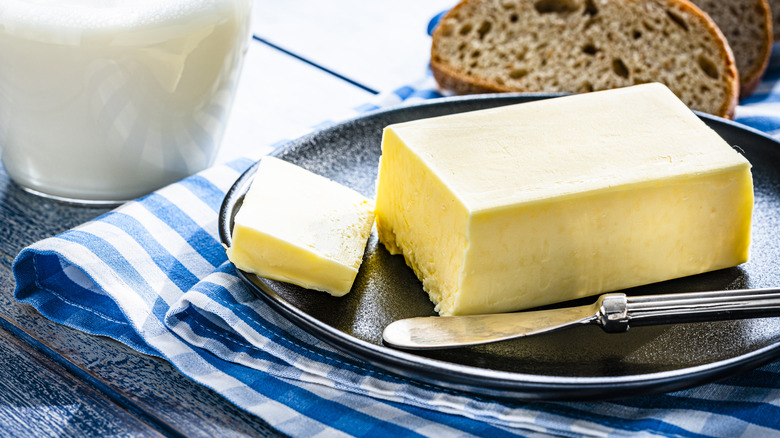Vegan Vs Dairy Butter: What Are All The Differences?
Anyone who's ever baked chocolate chip cookies or made a cake from scratch can attest to the importance of butter. It's an essential flavor building block in both cooking and baking, which has historically made the creation of vegan renditions tricky. Nowadays, grocery store shelves are lined with various brands of plant-based and vegan butter that claim to taste like the traditional dairy version and yield the same outcomes in the kitchen.
These vegan and plant-based butter options may taste like dairy butter, but that's about all the two types have in common. You'll very likely notice a difference if you typically bake with dairy butter and then swap it out for a vegan alternative. You may end up with similar flavors in the end, but the texture and mouthfeel will likely be noticeably unique. This is because these two types of butter have completely different compositions: Butter is made from churned cream, while vegan butter is primarily created from various oils.
Vegan butter
Vegan butter has developed a somewhat enigmatic reputation because it's such an oxymoron. If you've ever wondered how butter, something that's inherently dairy-based, can be vegan, you're not alone. Non-dairy butter substitutes are typically made from a blended combination of vegetable oils. If you look at the label on a container of vegan butter, you'll likely see ingredients like coconut oil, palm oil, and soybean oil, as well as other items that add flavor, like nuts and seeds.
Vegan butter is typically lower in calories, fats, and cholesterol than its traditional alternative. However, it's generally more expensive and has a limited range of applications. For example, vegan butter has a low smoke point, which makes it less ideal for baking or frying.
Vegan butter is also fairly similar to margarine. Both are plant-based, but margarine is exclusively made from vegetable oils, while vegan butter may blend oils with other ingredients. Margarine may also still contain trace amounts of animal products.
Dairy butter
Dairy butter is, for many chefs, an irreplaceable ingredient. It's created when cow's milk is rapidly churned; this agitation causes the fat to separate from the rest of the milk, forming butter. This butter has a completely different composition than any plant-based spread. While vegan butter often contains a handful of ingredients — usually various oils, nuts, and seeds — dairy butter is typically just made of cream and some water. Sometimes, salt is incorporated to give the product a longer shelf life, but between salted and unsalted butter, the latter is usually fresher.
Butter is an ideal choice of fat in baking because it allows your baked goods to rise. Rapidly mixing — or creaming — butter with sugar incorporates air into the mix, giving your final product a volume boost. This factor makes dairy butter a more popular choice than vegan alternatives, which don't produce the same effect. In fact, if you bake with vegan butter or oil, you'll likely end up with a denser baked good.


